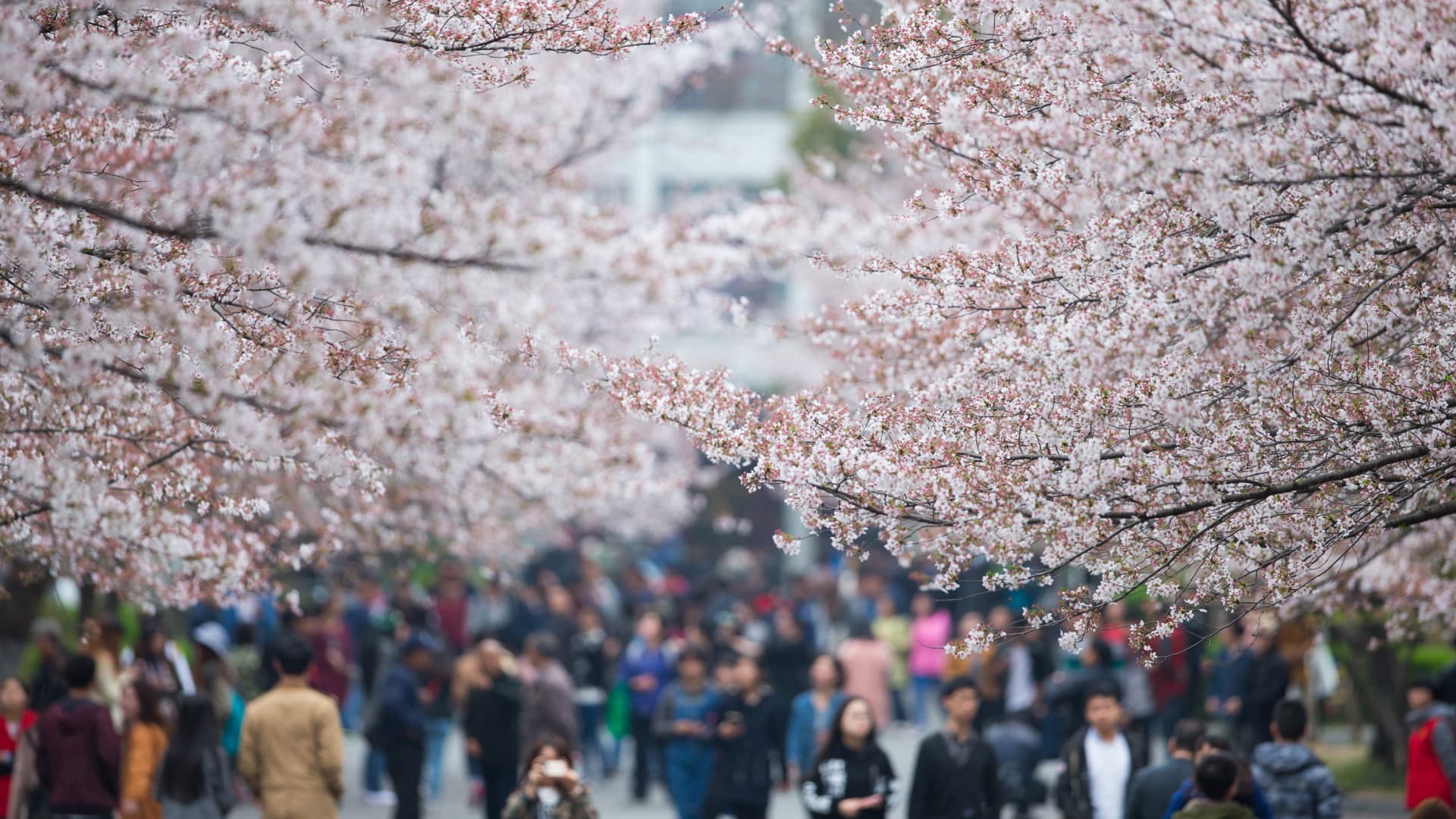China’s domestic tourism — a key indicator of retail spending — is on track to make a comeback after dipping to an all-time low during the nation’s worst lockdowns, according to official data and analysts.
Since the mainland’s biggest lockdown in Shanghai ended in late May, the increase in holiday bookings has indicated that tourism spending would be recovering in the second half of the year, Fitch Ratings said.
This buoyancy comes after tourism revenue and numbers in China hit a trough in the first half of 2022 and fell by nearly half compared to the same period in 2019 before the pandemic struck, Fitch added.
“China’s relaxed Covid-19 pandemic-related travel restrictions and more targeted pandemic control measures have fueled a rise in tourism demand, despite ongoing scattered outbreaks,” China-based Fitch Ratings analysts Flora Zhu and Jenny Huang said in a note late last week.
“A slow recovery in the tourism sector has put a drag on the economy given its large contribution, accounting for around 11% of GDP and 10% of national employment in 2019.”
After a series of relaxations by Beijing — including the easing of inter-provincial group travel bans and the curb of excessive local government mobility controls in June — traveler numbers leapt by over 62% month-on-month in July, Fitch Ratings said, citing official Chinese data.
Data from online travel agencies such as Tuniu Corporation showed bookings surging 112% over July, Fitch said.
The daily average tourists at Xinjiang’s top-rated, or “5A-level,” tourist attractions skyrocketed to 110,000 in July compared with 19,000 in May, the Fitch analysts said. Yunnan’s Dali city, a famous tourist spot, attracted 6.9 million tourists — a 46% jump from pre-pandemic levels in 2019, they said.
The recent outbreaks in Hainan, Xinjiang and Tibet are unlikely to pull back the recovery in tourism as there are fewer travelers in these regions compared to the rest of the nation, the Fitch report said.
But recovery, while robust, remains patchy across regions, in particular, short haul travel operators will do better than national scenic spot tourist companies which target national visitors, it added.
Chinese consumers will continue to favor local and shorter trips amid the pandemic, the report said.
The pandemic has also altered domestic Chinese tourism, business consultancy China Briefing said in a note last week.
Group-travel destinations have lost some of their popularity as Chinese travelers steer toward family vacations, health-care tours and research trips, it said.
CTrip, China’s leading online travel agent, said in its summer tourism report last month that “parent-child” or family travel, as opposed to traditional Chinese big bus tours, has increased.
Signs of recovery have appeared across Chinese retail spending including tourism.
New data on Monday shows July’s retail spending increased 2.7% year-on-year following an unexpected 3.1% rise in June, although the latest result for July fell short of analysts’ expectations of a rise of between 4% and 5%.
These were the first increases in retail spending since February, as consumption picked up after Covid-19 infections and restrictions eased.
In May, as Shanghai battled its worst lockdown, retail sales were down 6.7% year-on-year.
